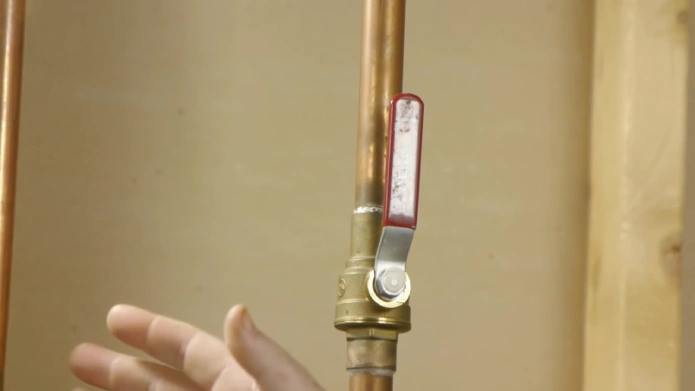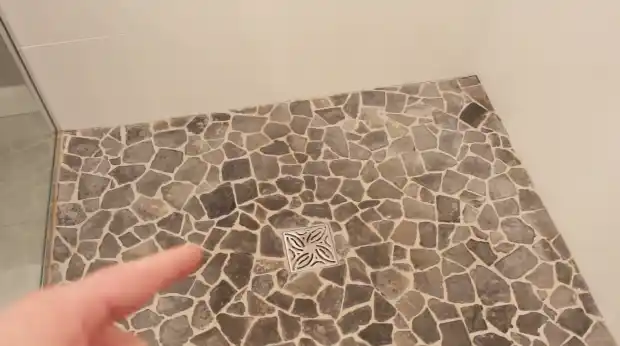Last Updated on April 25, 2023
Have you ever wondered if drinking your sump pump water is safe? Maybe you’re in a hurry, running out of bottled water, or just curious. Either way, the answer is a resounding no. Despite its clear appearance, sump pump water is not drinkable.
The water collected by your sump pump might appear safe for consumption but contain harmful contaminants. Heavy metals like lead, cadmium, and nickel often lurk in ground water and can easily enter your sump pit water. These toxins can cause serious health problems, especially for kids and pregnant women.
Even if you use a reverse osmosis filtration system, it won’t be enough to make the water safe for consumption. While this filter reduces minerals, bacteria, and viruses, it doesn’t remove heavy metals. With all that dirt and debris in the water, it’s evident that drinking sump pump water isn’t a good idea.
Today we’ll explain why it’s essential to avoid drinking your sump pump water and what potential dangers it could pose to your health.
Can You Drink Sump Pump Water: Is It Dangers?

Drinking water from an unreliable source, such as a sump pump, can be hazardous to one’s health. Raw sump pump water contains harmful elements that severely threaten one’s health.
Here are some of the potential dangers:
Bacteria and Viruses
Raw sump pump water can contain various harmful bacteria and viruses, including E.coli, salmonella, and giardia. These can cause stomach and intestinal illnesses such as diarrhea, nausea, and vomiting. They can even lead to life-threatening conditions such as kidney failure and meningitis in severe cases.
It is important to note that these bacteria and viruses are not always visible to the naked eye. Thus, you must know whether or not raw sump pump water is contaminated just by looking at it. The only way to ensure the water is safe to consume is by treating it properly.
Harmful Chemicals
Raw sump pump water may also contain harmful chemicals such as pesticides, herbicides, and fertilizers. These chemicals are often used in agriculture and can seep into the ground and contaminate the water supply.
Exposure to these chemicals can cause various health problems, such as headaches, nausea, and dizziness. Some studies have even linked long-term exposure to these chemicals with cancer and other serious illnesses.
Heavy Metals
In addition to bacteria and harmful chemicals, raw sump pump water can contain heavy metals like lead and arsenic. These metals can enter the water supply through natural processes or human activities such as industrial waste.
Exposure to these heavy metals can cause serious health problems such as kidney damage, nerve damage, and even cancer. Children and pregnant women are especially vulnerable to the effects of lead exposure.
Parasites
Sump pump water can be a breeding ground for different parasites, including cryptosporidium and cyclospora. These tiny organisms can cause various gastrointestinal problems when ingested, such as diarrhea, vomiting, and stomach cramps.
The symptoms can last several days and be particularly severe for individuals with weakened immune systems, such as the elderly, pregnant women, and people with HIV/AIDS. In addition to causing acute illness, some parasites can lead to long-term health effects.
For example, Giardia lamblia, another common parasite in sump pump water, has been linked to irritable bowel syndrome and chronic fatigue syndrome. It can also suppress the immune system, leading to a higher risk of developing other infections.
Radon
Radon is a radioactive gas that is naturally produced by the decay of uranium in soil and rocks. It is often found in groundwater and can enter homes through cracks in the foundation or pipes. When inhaled over a long period, radon can cause lung cancer, making it a serious health concern for individuals.
According to the Environmental Protection Agency (EPA), radon is the second leading cause of lung cancer in the United States after smoking. The EPA recommends that homes be tested for radon levels and that remediation steps be taken if high concentrations are detected.
How Can You Drink Water from Your Sump Pump Safely?

If you are in an emergency situation without safe drinking water and have to use sump pump water, you must first purify the water. To purify the water from your sump pump, follow these steps:
STEP 1. Collect the Water from the Sump Pump
To begin, you will need to collect water from the sump pump. Before collecting it, the water is free from solid debris, such as dirt or leaves. Also, you must remember that water from sump pumps may be contaminated with chemicals and other pollutants.
Therefore, it is essential to handle this water with caution and only use it in emergencies when no other safe water source is available.
STEP 2. Filter the Water by Using a Coffee Filter
After collecting the water, filter it using a coffee filter. This will help to remove any small particles, debris, or dirt that may be present in the water. Simply place the filter over a glass, jar or container, and pour the water through it. This step is relatively easy and can be done using readily available supplies in your home.
STEP 3. Boil the Water for at Least Five Minutes
Boiling water is one of the most effective ways of disinfecting water that can be consumed. To purify water from a sump pump, boil it for at least five minutes.
This will destroy any harmful bacteria, viruses or other pathogens present in the water. Furthermore, boiling water will also eliminate any chemical contaminants that may be present.
STEP 4. Let the Water Cool Down
After boiling the water, let it cool down before drinking it. This is because boiling water can make it very hot, and drinking it hot can be difficult and cause burns. Once the water has cooled down, you can move on to the next step.
STEP 5. Use a Water Purification Tablet or Drops
Water purification tablets (such as Aquatabs and Ef-Chlor) or drops are another effective way of disinfecting water from a sump pump. These tablets or drops contain chemicals that kill harmful bacteria, viruses, and other pathogens in the water. Follow the manufacturer’s instructions on the package for the best results.
STEP 6. Store the Purified Water in a Container
After purifying the water, store it in a clean container free from contaminants. It is advisable to use a container specifically designed for storing water, like a water bottle or a stainless steel container. This will help to keep the water safe for consumption and prevent any contamination from occurring.
Do water purification tablets work for purifying sump pump water?

Water purification tablets are an effective method for purifying water, including sump pump water, for consumption. These tablets contain specific chemicals, such as chlorine dioxide, which kills microorganisms and pathogens in the water.
As sump water may contain various contaminants and be highly polluted, it is crucial to purify it before consuming it. These tablets effectively disinfect water, making them safe for drinking.
Also, water purification tablets can prevent the spreading of diseases such as cholera, dysentery, typhoid and other water-borne illnesses.
Can dogs drink sump pump water?
Dogs and other pets should not be allowed to drink sump pump pit water directly, as it can be highly contaminated and contain harmful chemicals. As sump water can contain various contaminants, it is essential to ensure it is clean and suitable for consumption before giving it to your pet.
Boiling and filtering the sump pump water can be a viable method to make it safe for drinking for your dog. Boiling the water at 100 degrees Celsius can kill bacteria in the water, and further filtering it can remove any remaining sediment and pollutants.
It is also essential to ensure the water is at room temperature before giving it to your dog. Encouraging your pet to drink filtered water can help minimize the risk of them contracting illnesses or diseases from consuming contaminated water.
What can I do with my sump pump water?

The water that the sump pump removes can be put to use for a variety of tasks, such as:
Watering Your Plants
Using a backup sump pump water to water your plants is an excellent way to conserve water. Many plants can benefit from extra hydration, but it’s important not to overwater them. Sump pump water is ideal for watering your plants as long as it’s free from pollutants and chemicals.
Washing Your Cars
Using sump pump water to wash your car is a sensible choice as it can save money and protect the environment. Sump pump water is excellent for washing cars because it is usually free of the added chemicals found in tap water.
Plus, using sump pump water reduces the amount of water you use, which helps to decrease your water bill.
Flushing Your Toilet
Another way to conserve water is using sump pump water to flush your toilet. Newer high-efficiency toilets use only 1.28 gallons per flush, while older toilets use up to five gallons. You can use less water without sacrificing cleanliness by flushing your toilet with sump pump water.
Cleaning Your Floors
Sump pump water can be a useful tool for cleaning your floors. This water can be heated, mixed with an eco-friendly cleaning solution, and used to clean your floors. You can also use sump pump water to clean your floors before steam mopping them.
Watering Your Lawn
Watering your lawn is essential for keeping it looking vibrant, but it can be wasteful. Using sump pump water to water your lawn is a good way to save money while keeping your lawn green. Sump pump water can be used for lawn irrigation if it is free of pollutants and chemicals.
Cleaning Tools and Equipment
Sump water can be used to clean dirty tools and equipment. You can soak your tools in sump pump water to break down dirt and grime accumulating over time. This will help your tools last longer and reduce the risk of rust.
Composting
Sump pump water can be a helpful ingredient in composting. Composting is a natural process of breaking down organic matter into nutrient-rich soil. Sump pump water can add moisture to the compost pile and help to speed up the process.
However, testing the sump pump water for quality is essential before using it in your compost pile.
Avoid Drinking Sump Pump Water Without Filtration: Follow Essential Steps
Drinking sump pump water without proper filtration is not recommended, even with a reverse osmosis filtration system. Sump pump water can be laden with heavy metals and other pollutants, posing a health risk to those who consume it.
Therefore, using a trustworthy water source like municipal water or well water that has been treated and tested for contaminants is always advisable. But in emergency situations, if you must use sump pump water, it is recommended to use a high-quality water filtration system that removes pollutants.
By following the steps outlined above, you can effectively purify sump pump water and have a reliable source of safe drinking water. Stay informed and be prepared for anything.



